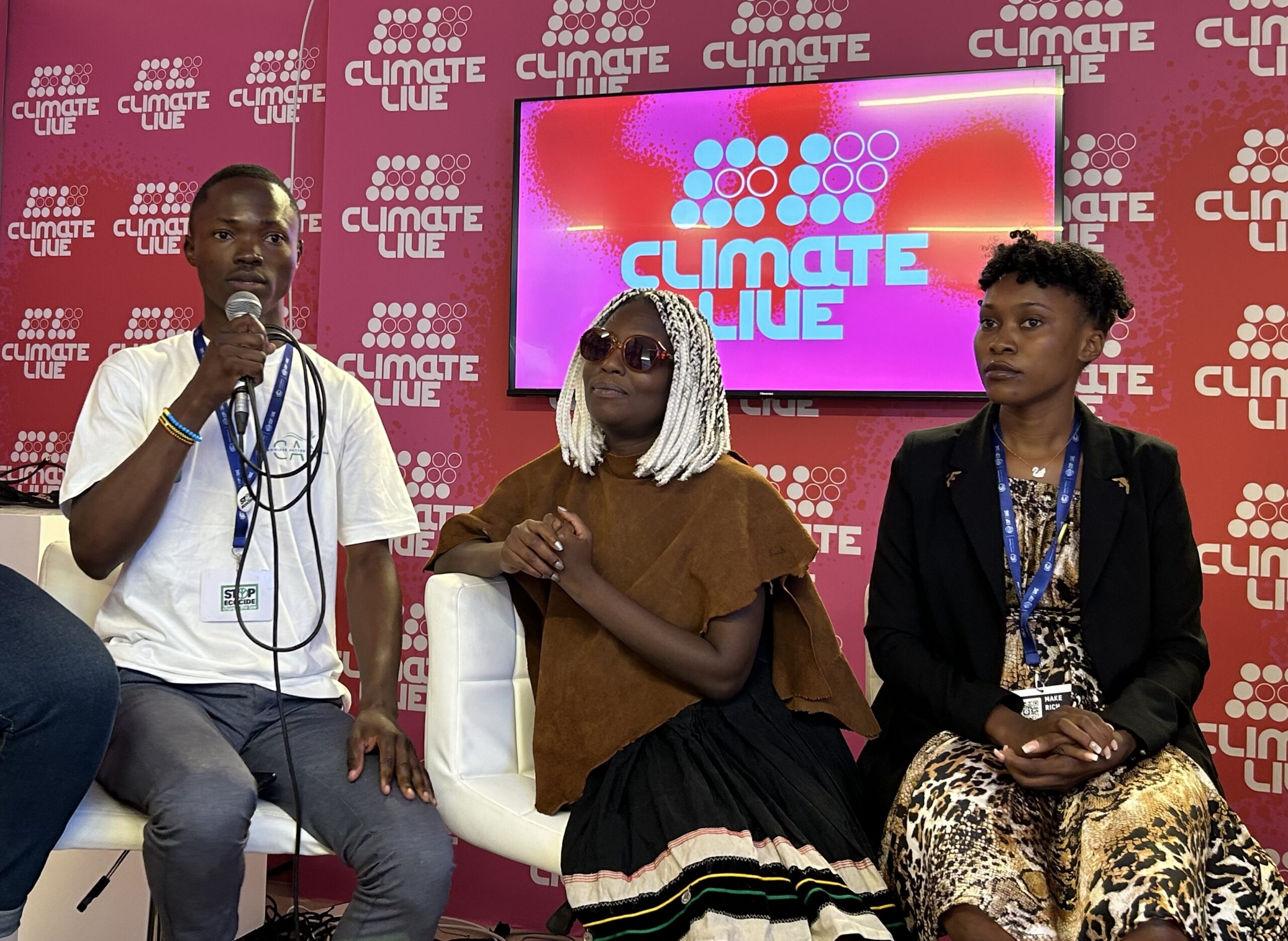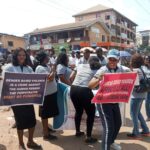By Kate Okorie
Stepping into the vibrant atmosphere of the youth pavilion at the venue of the United Nations conference in Dubai, chances are high that you will meet the charismatic Guillaume Kalonjii. Always wearing a warm smile, he welcomes everyone to conversations, speaking English—a feat that was once impossible for the young activist from the French-speaking Democratic Republic of Congo.
Kalonjii’s journey to learning – and speaking – a new language was borne out of a need to make an impact as a climate activist. Around two years ago, he left a comment on a Twitter post by Uganda climate justice activist, Joshua Omonuk.
Kalonjii had commented under the Ugandan’s post: “Hi dear, I would like to do the same things you do but in my country, Congo.”
Even though he did not know a word of English at the time and had used Google to translate his message, he was still able to get the attention of Omonuk.
Omonuk’s post showed him holding up an improvised placard made from carton paper with a message calling for climate action, a style of protest that Kalonjii was keen to amplify.
Learning English was difficult, but Omonuk introduced him to many Ugandans in the Rise Up Movement. Leveraging these new English-speaking contacts and watching speeches related to climate change aided his learning.
“I didn’t have any formal English teaching. But I downloaded lots of speeches by climate activists and watched them morning, midday, and night—any time I was free,” he said.
Kalonjii has now perfected his online messaging, amassing tens of thousands of views on Twitter each time he posts.
“When I started posting climate content, it was in French. But most climate activists operate in English; even here at COP28, everything is in English. So, I needed to learn English,” Kalonjii explained.
Kalonjii has also built strong relationships with some of the activists after he watched their videos and engaged with them in his newly adopted language. That includes activists like Vanessa Nakate, founder of the Rise Up Movement.
Learning another language, he said, has been transformational.
“This is my second COP; I was at COP27 in Egypt and it was impossible for me to talk to people. But now I can talk to people, connect and speak on panels. That is something positive for my activism,” he said.
Now working with Congolese Action for Nature, Kaloniji’s expanded communication capacity also means he can reach more people when messaging about Congolese local communities battling the climate crisis, including women and girls.
“In Congo, we say education begins at home, which means women and girls are the first teachers of our community. That is why Congolese Action for Nature is working on climate education to empower women and girls so they can continue to teach children,” he said.
bird story agency
At the bustling youth pavilion of the United Nations conference in Dubai, Guillaume Kalonjii stands out with his welcoming presence and newly acquired English skills. Originally from the French-speaking Democratic Republic of Congo, Kalonjii learned English to enhance his climate activism efforts.
Inspired by Ugandan climate activist Joshua Omonuk, Kalonjii began his language journey about two years ago after reaching out to Omonuk on Twitter using Google Translate. Joining the Rise Up Movement and consuming a plethora of English climate speeches facilitated his learning process.
Now proficient, Kalonjii has gained a substantial following on Twitter and built strong relationships with other activists like Vanessa Nakate. His language skills have significantly bolstered his activism, allowing him to engage in international discussions, including at events like COP28.
Kalonjii's work with Congolese Action for Nature focuses on empowering women and girls through climate education, emphasizing their role in community teaching. His expanded language abilities enable him to communicate more effectively about the climate challenges facing local communities in Congo.






